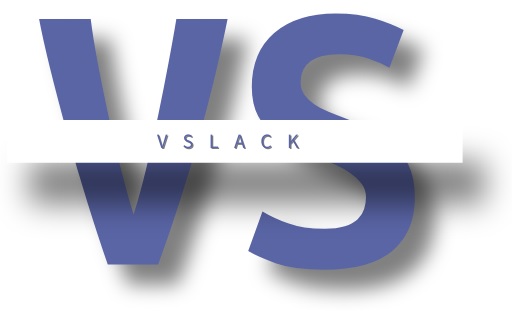Introduction
April Fools' Day, celebrated on the first day of April, is a time-honored tradition in many parts of the world. It is a day dedicated to practical jokes, hoaxes, and playful pranks, with people often trying to deceive or embarrass others in good spirits. This article explores the history, evolution, and impact of April Fools' jokes, shedding light on why we engage in these amusing antics year after year.
History of April Fools' Day
The origins of April Fools' Day are shrouded in mystery, with various theories and legends attempting to explain its inception. Some historians trace it back to ancient Roman and Celtic celebrations, while others believe it evolved from religious observances or changes in the calendar. Regardless of its exact origins, April Fools' Day has become a beloved tradition embraced by people around the world.
Popular April Fools' Jokes Throughout History
Over the years, April Fools' Day has inspired countless memorable pranks and hoaxes. From newspaper headlines announcing outlandish events to elaborate practical jokes orchestrated by celebrities and public figures, the holiday has seen its fair share of mischief and merriment. One famous example is the BBC's 1957 broadcast of a spaghetti tree harvest, which fooled many viewers into believing that spaghetti grew on trees.
Digital Age Pranks
With the rise of the internet and social media, April Fools' Day jokes have taken on a new dimension. Tech companies, in particular, have embraced the opportunity to showcase their creativity and sense of humor through elaborate online pranks. From fake product announcements to clever website redesigns, these digital hoaxes often garner widespread attention and amusement from the public.
Impact and Reception
While April Fools' jokes are intended to be light-hearted and entertaining, they can sometimes have unintended consequences. In recent years, some pranks have sparked controversy or backlash, raising questions about the ethics of deception and the potential for harm or offense. It's essential to strike a balance between humor and sensitivity when engaging in April Fools' Day antics.
Cultural Differences
The celebration of April Fools' Day varies from country to country, with some cultures embracing the tradition wholeheartedly and others remaining largely unaffected by it. In France, for example, April Fools' Day is known as "Poisson d'Avril," or "April Fish," and involves attaching paper fish to people's backs as a prank. Understanding these cultural differences adds depth to our appreciation of the holiday's global significance.
Ethical Considerations
As April Fools' Day approaches, it's essential to consider the ethical implications of playing pranks on others. While harmless jokes can bring joy and laughter, they should never come at the expense of someone else's feelings or well-being. Practicing empathy and respect ensures that everyone can enjoy the holiday without fear of being hurt or humiliated.
Tips for Responsible Pranking
For those planning to participate in April Fools' Day festivities, here are some tips for ensuring that your pranks are fun, respectful, and considerate:
- Know your audience: Tailor your jokes to the sensibilities of the people around you, avoiding anything that may be perceived as offensive or hurtful.
- Keep it light-hearted: Focus on playful and harmless pranks that evoke laughter rather than embarrassment or discomfort.
- Respect boundaries: Be mindful of personal boundaries and avoid crossing them with your jokes. If someone expresses discomfort or asks you to stop, respect their wishes.
- Avoid potential harm: Steer clear of pranks that could cause physical or emotional harm to others, including those involving deception or manipulation.
- Spread positivity: Use April Fools' Day as an opportunity to spread joy and positivity, uplifting others with your creativity and sense of humor.
Conclusion
April Fools' Day is a time for laughter, creativity, and community, as people come together to share in the joy of playful pranks and harmless hoaxes. While the holiday's origins may be shrouded in mystery, its enduring appeal lies in its ability to bring people together through shared moments of humor and levity. As we celebrate April Fools' Day this year, let's embrace the spirit of fun and camaraderie while being mindful of the impact our jokes may have on others.
FAQs (Frequently Asked Questions): 1. Is April Fools' Day celebrated worldwide? Yes, April Fools' Day is celebrated in many countries around the world, although the customs and traditions associated with the holiday may vary. 2. Are there any historical origins of April Fools' Day? The exact origins of April Fools' Day are uncertain, but it is believed to have evolved from various historical and cultural influences, including ancient Roman and Celtic traditions. 3. What are some examples of famous April Fools' Day pranks? Some famous April Fools' Day pranks include the BBC's 1957 spaghetti tree hoax and Burger King's "Left-Handed Whopper" announcement in 1998. 4. Are there any guidelines for playing April Fools' Day pranks responsibly? Yes, it's essential to consider the feelings and sensibilities of others when playing pranks, ensuring that they are harmless, respectful, and enjoyable for everyone involved. 5. Is there a risk of April Fools' Day pranks going too far? While April Fools' Day is meant to be a day of fun and laughter, there is a risk that pranks can cause harm or offense if they are not executed thoughtfully and responsibly. It's important to be mindful of this and prioritize kindness and empathy when planning and executing pranks.










0 Comments